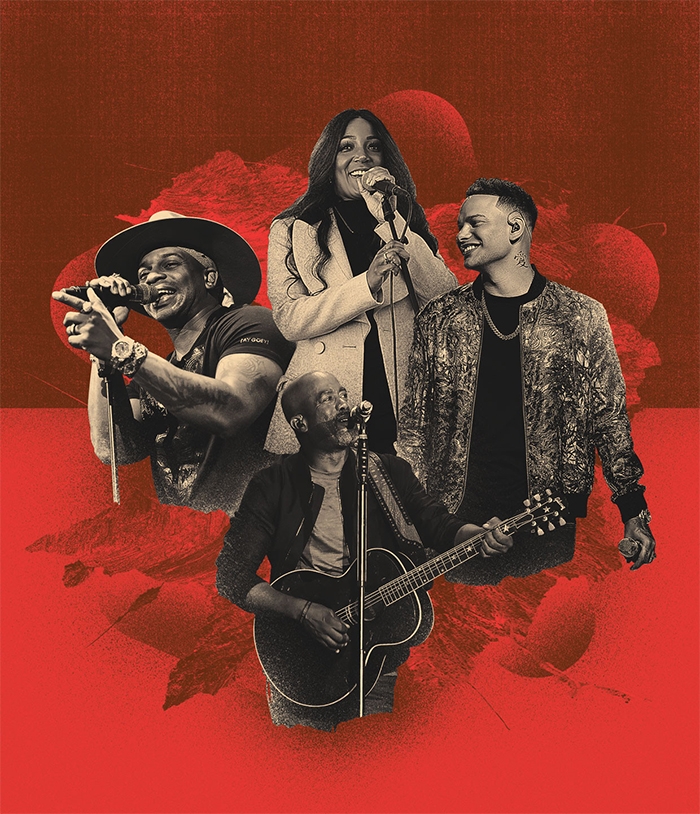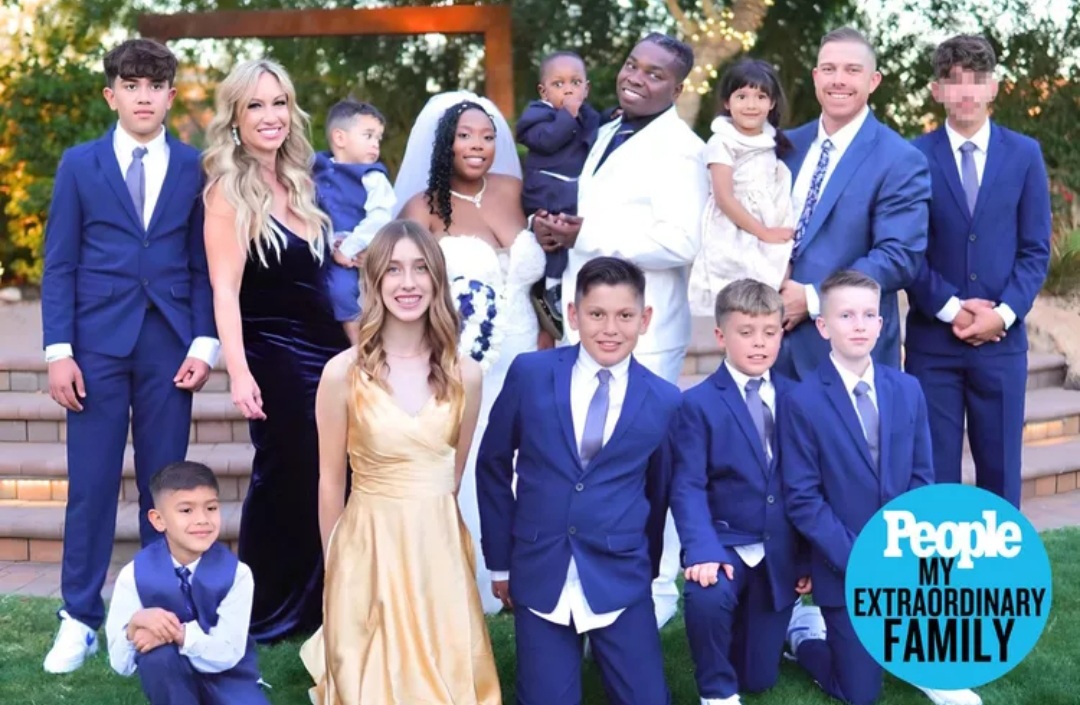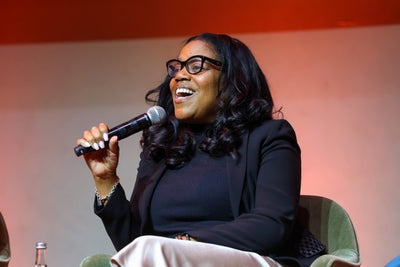
On July 10 — six weeks after the police killing of George Floyd ignited protests around the world — Jimmie Allen released his Bettie James EP. One track, “Why Things Happen,” particularly stood out: With its lyrics about life’s fleeting nature and a plaintive refrain asking “why things happen like they do,” it poignantly captured the mood of a nation torn apart by both a pandemic and racial tensions that had reached a boiling point. But it was the voices on the track that made it most powerful: Allen, Darius Rucker and Charley Pride — three generations of Black country stars singing together.
“We got a chance to represent Black country artists for younger Black kids who want to do country but don’t feel anyone out there looks like them,” says Allen. “No matter your race, it’s important to see someone who looks like you doing what you love. It makes it more realistic. It makes it seem achievable.”
What might have once seemed unachievable is slowly becoming a reality. Allen — a 34-year-old Delaware native who, in 2018, became the first Black artist to launch his career with a No. 1 single on Country Airplay (the platinum-certified “Best Shot”) — is part of a growing circle of Black country singer-songwriters claiming their rightful place in Nashville and on the charts, 50 years after Pride’s arrival as a pioneer in mainstream country. That group includes Kane Brown, who is biracial and in 2017 became the first artist to post a simultaneous No. 1 on all five main Billboard country charts; Mickey Guyton, a 2016 Academy of Country Music award nominee for best new female vocalist; and Blanco Brown, who went platinum with his debut single, the 2019 Hot Country Songs chart-topper “The Git Up.” And there are promising rising talents to watch, like country-trap singer-songwriter Breland, whose “My Truck” was just RIAA-certified gold, and prolific songwriter Shy Carter (who has worked with Kane Brown, Keith Urban and Sugarland), who released his own first single, “Good Love,” on Juneteenth.
As these artists’ persistence pays off, some proactive label executives are backing their efforts. “The country music fan base was ready for Black artists. But it takes a record label actually signing [Black] artists to make that happen — to put them out there on a mainstream level to the masses,” says Allen, who is signed to Stoney Creek Records/BBR Music Group. Still, these artists say they need more support, noting that the music industry’s systemic racism — brought into focus by the #TheShowMustBePaused initiative in June — is something they’re all too aware of. “There’s always pushback, having to prove how country I am,” adds Allen.
For the full story, visit Billboard.com.



